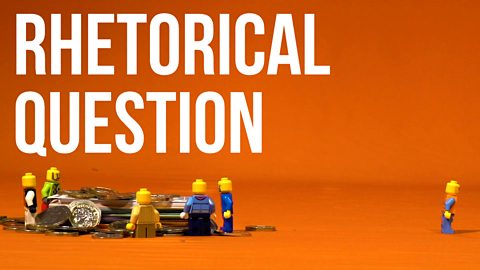Repetition is when a single word, or a groups of words, is repeated for effect.
Repeating a word or phrase in a sentence can emphasise a point, or help to make sure it is fully understood.
- Without repetition: 'The soup was stirred until thickened.'
- With repetition: 'The soup was stirred and stirred until thickened.'
Repeating the word 'stirred' suggests that a lot of time and effort has gone into making the soup.
Examples
Speech
In his most famous speech, Martin Luther King repeats the phrase 'I have a dream.'Every repetition of this line builds on the one that has come before. This reinforces Martin Luther King's passion and emphasises each point he makes.
- 'I have a dream that one day down in AlabamaÔÇŽ'
- 'I have a dream today.'
- 'I have a dream that one day every valleyÔÇŽ'
Poetry
In his poem Visiting Hour, Norman MacCaig writes about visiting his sick wife in hospital: 'I will not feel, I will not feel, until I have to.'
The repetition of the phrase 'I will not feel' suggests the speaker is trying to remain numb and not let his feelings overwhelm him.
Novels
The opening of Charles Dickens' novel A Tale of Two Cities uses repetition to emphasise contrast between positives and negatives: 'It was the best of times, it was the worst of times.'
In F. Scott Fitzgerald's novel The Great Gatsby, repetition is used to emphasise the size of Tom Buchanan's apartment, which he visits with the woman he is having an affair with: 'The apartment was on the top floorÔÇöa small living-room, a small dining-room, a small bedroom, and a bath.'
Repetition of the word 'small' highlights to the reader how tiny Tom's apartment is. A small apartment is easier to hide than a large house so this repetition emphasises the secretive nature of Tom's affair. It also suggests Tom does not think very highly of his mistress.
More on Understanding, analysing and evaluating
Find out more by working through a topic
- count9 of 15

- count10 of 15

- count11 of 15

- count12 of 15
